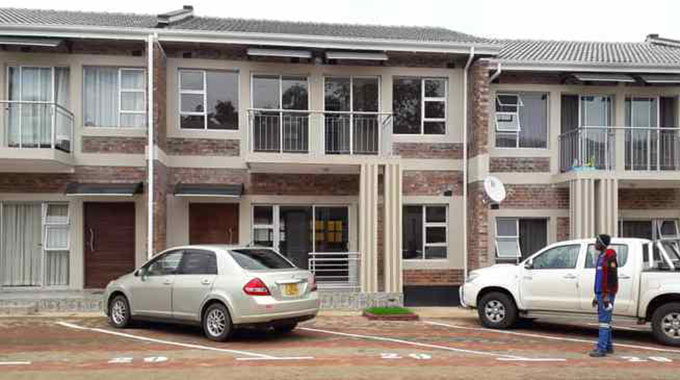Unpacking property rights in marriage

Tichawana Nyahuma
Correspondent
Upon being joined in holy matrimony, the newly-weds become one. Indeed, in the Holy Bible in Mark 10 verses 7 to 8, it is written; “For this reason, a man shall leave his father and mother and be joined to his wife and the two shall become one flesh. So they are no longer two, but one flesh”.
But at law, what becomes of the spouses’ properties upon becoming “one”? Do their property interests also legally “become one”?
This discussion takes a view at the legal implications of a marriage on the spouses’ assets whether the same were acquired before or during the marriage.
It shall also tackles the aspect relating to debts or liabilities that the spouses might accrue either jointly or individually. In the event one of the spouses accrues a debt, and is then sued, but it is the other partner’s property that is attached, what then will be the legal consequences?
In such a circumstance, what are the legal avenues available to the innocent spouse to follow in order to rescue the property?
Before jumping into the matter, it is stressed that this discussion is largely concerned with the parties’ property rights during the subsistence of the marriage. There are special rules that come into play in the event the marriage is dissolved by the death of one of the spouses.
The aspect relating to property rights of the parties at divorce is dealt with at the conclusion of this presentation. Apparently, there is conflict between our law, and what the Bible commands in respect of the spouses’ properties once they enter the marriage institution.
Whereas the Bible says, as already been said, that in marriage, the two become one, in our country and in terms of the Married Persons Property Act, the law since as far back as January 1, 1929, has been that all marriages are out of community of property.
The expression “out of community of property” means that whatever property is brought into the marriage by a particular spouse remains his/her exclusive property.
In the same breath, whatever property is acquired by the spouses jointly before or during the marriage, belongs to them together or conjointly. By logical reasoning, whatever liabilities that one spouse might incur is for that particular person to settle.
It does not legally affect the other spouse. Accordingly, the innocent spouse cannot be sued jointly with the guilty spouse for the recovery of such a debt unless the obligation was accrued by the couple jointly.
Before entering into the marriage, however, the love-birds are free to exclude themselves from the rule that says marriages in Zimbabwe are out of community of property.
They do so by entering into what is referred to as “an ante nuptial contract” or expressed in another way, an agreement in community of property which basically is the opposite of the out of community of property arrangement.
The ante nuptial contract is simply an agreement signed by the would be spouses in the presence of a magistrate and one other adult person as witnesses, and has to be registered in the office of the Registrar of Deeds.
Without this procedure, such an ante nuptial contract will not have the force of law.
In other words, if not done as such, the marriage will be deemed to be one that is out of community of property.
It is emphasised that the said ante nuptial contract cannot be entered into after the solemnisation of the marriage. It has to be done before. After all, the word “ante” means before.
Generally speaking, as between husband and wife, it can safely be argued that husbands are usually the more adventurers or the more entrepreneurial with the result that they end up acquiring assets and incurring liabilities in their own names.
As a result, most matrimonial homes are registered in the names of the husbands, and if they should incur debts, those properties, whether they be movable or immovable are capable of being attached and sold to pay off the debts.
There is usually not much ado with respect to an immovable property as to whom the owner is because the title deed holds the answer.
Accordingly, in a case in which the matrimonial home is registered in the name of the wife, and in the event the husband accrued a liability, the creditor will not be able to attach such an asset unless the wife had offered it as security for that debt.
If on the other hand, the property was registered in the name of the debtor husband, there will be no controversy there. It will go, just like that.
However, the same does not apply to movable assets such as lounge suits, radios, television sets, motor vehicles and the like.
Although these may belong to the wife, there is no national register somewhere where the same goods are registered indicating who the legal owner is except for the motor vehicles.
This being the case, it means that such assets may be attached and sold to settle the husband’s debts. Although motor vehicles are registered in the appropriate office in the name of a particular person, the position of the law is that registration of a motor vehicle is not proof of ownership.
Proof of ownership of a movable asset is usually by mere possession. He/she who is normally possessed of the movable asset, in this case a motor vehicle, is presumed to be the owner even though the same is in fact registered in the name of another person.
So in a circumstance where an innocent wife’s property is attached for the husband’s debts, what or how does she extricate the assets from the strong grip of the hand of the Sheriff of the High Court or the Messenger of the Magistrates’ Court?
There is what is referred to as “inter pleader proceedings” which is a process in terms of which a person purporting to be the real owner of attached goods goes to court to claim them back before they are auctioned.
What is critical is for that person to produce sufficient proof of ownership. Like as already been indicated, if the property is immovable such as a house or a farm, then the relevant title deed will speak for the parties.
Yet, if the property is movable, then authentic receipts or other acceptable documentation in the name of the person laying claim may suffice.
Without such proof, it may be difficult to succeed in such a claim.
When it comes to motor vehicles, and although it has been mentioned that the registration book is not proof of legal ownership, it is a good starting point in the inquiry.
The court will arrive at its final decision after considering all the circumstances surrounding the case.
Finally, it is emphasised that the rule that says all marriages in Zimbabwe are out of community of property does not apply in the event of the couple divorcing. Section 7 of the Matrimonial Causes Act gives the court, upon divorce, wide powers, but subject to certain exceptions as explained later, in dividing and apportioning the assets of the spouses who would have decided to see each other’s back.
It says; “(1) Subject to this section, in granting a decree of divorce, judicial separation or nullity of marriage, or at any time thereafter, an appropriate court may make an order with regard to; (a) the division, apportionment or distribution of the assets of the spouses, including an order that any asset be transferred from one spouse to the other”.
That last part which says, “including an order that any asset be transferred from one spouse to the other” is telling.
It is critical. It gives the court massive power that enables it to reach whatever asset that belongs to either of the divorcing couple without minding when or how such property was acquired.
Parties are, therefore, not to take comfort from the fact that a particular asset is registered in their own name or that it was acquired before the marriage, because the divorce court can and will be able to flex its muscles, and seize that asset from the owner-spouse and allocate it to the other at divorce depending upon the circumstances of the case.
The exceptions alluded to earlier are that at divorce, certain assets belonging to either of the spouses may not be transferred from the one party to the other whether or not the asset was acquired before or during the marriage.
The excepted situations are where the asset concerned was acquired:
(a) by way of inheritance;
(b) in terms of a custom and which, in accordance of with such custom, are intended to be held by the spouse personally, or;
(c) in any manner and which have particular sentimental value to the spouse concerned.
At the determination of the issue by the court, it will not be just a matter of making bald assertions that the asset ought not to be transferred to the other spouse on account of any one of these exceptions. There will be need to adduce sufficient proof to back up one’s claim in terms of any of the exceptions.
Tichawana Nyahuma is a lawyer, and he writes in his personal capacity. Feedback: [email protected].







Comments